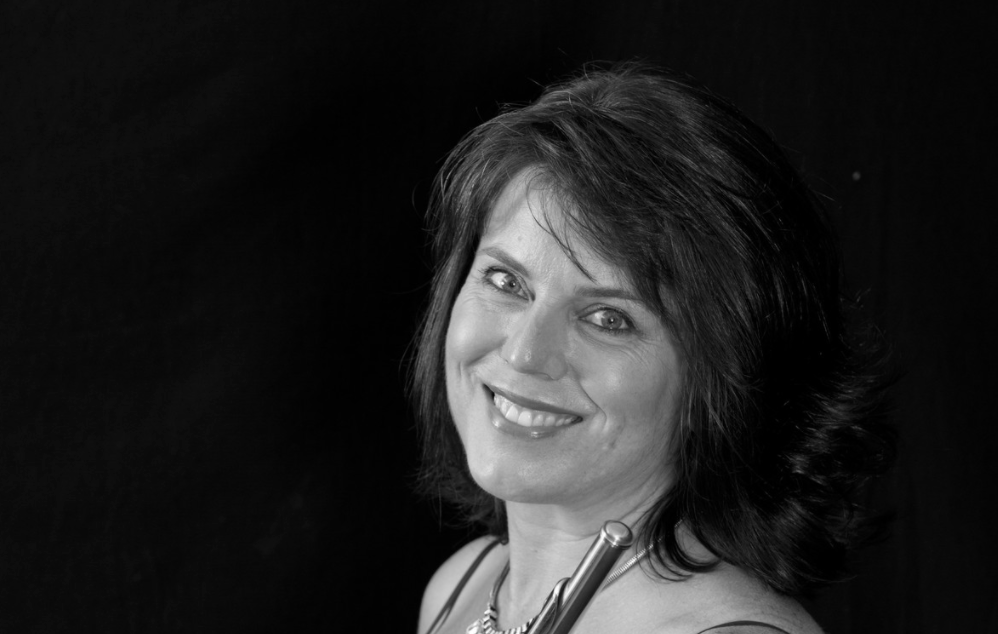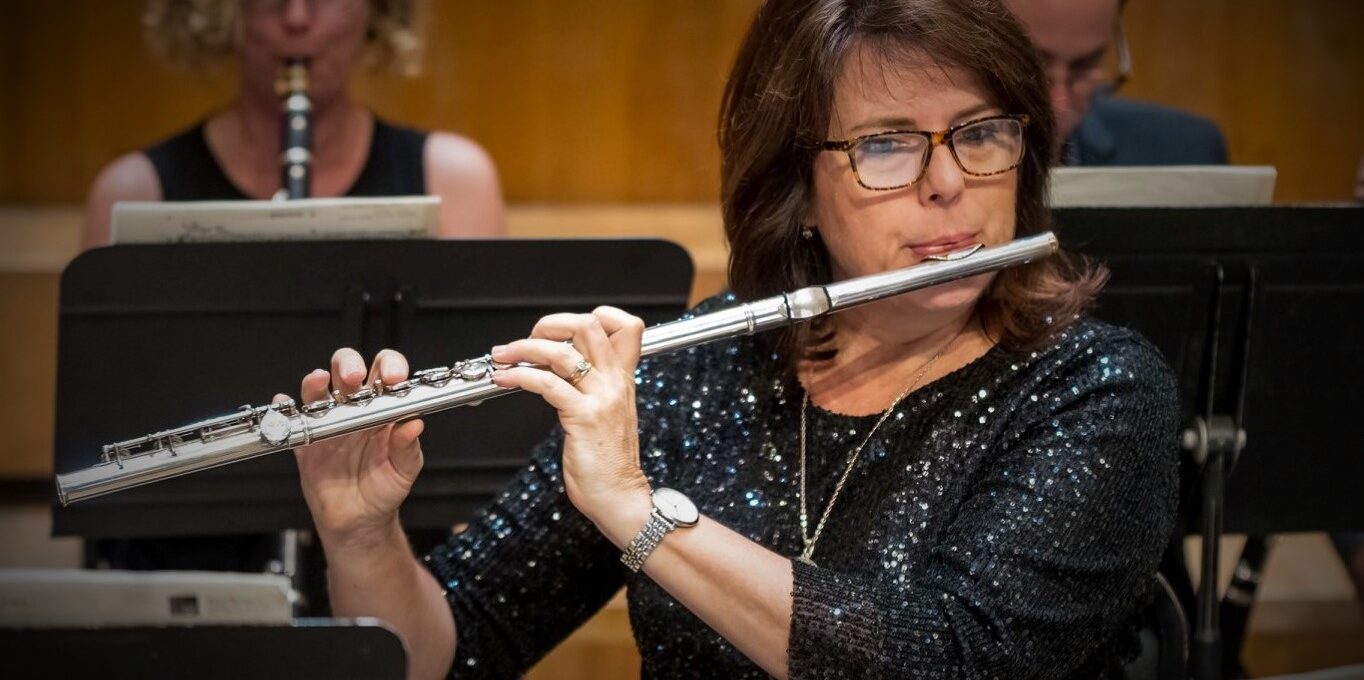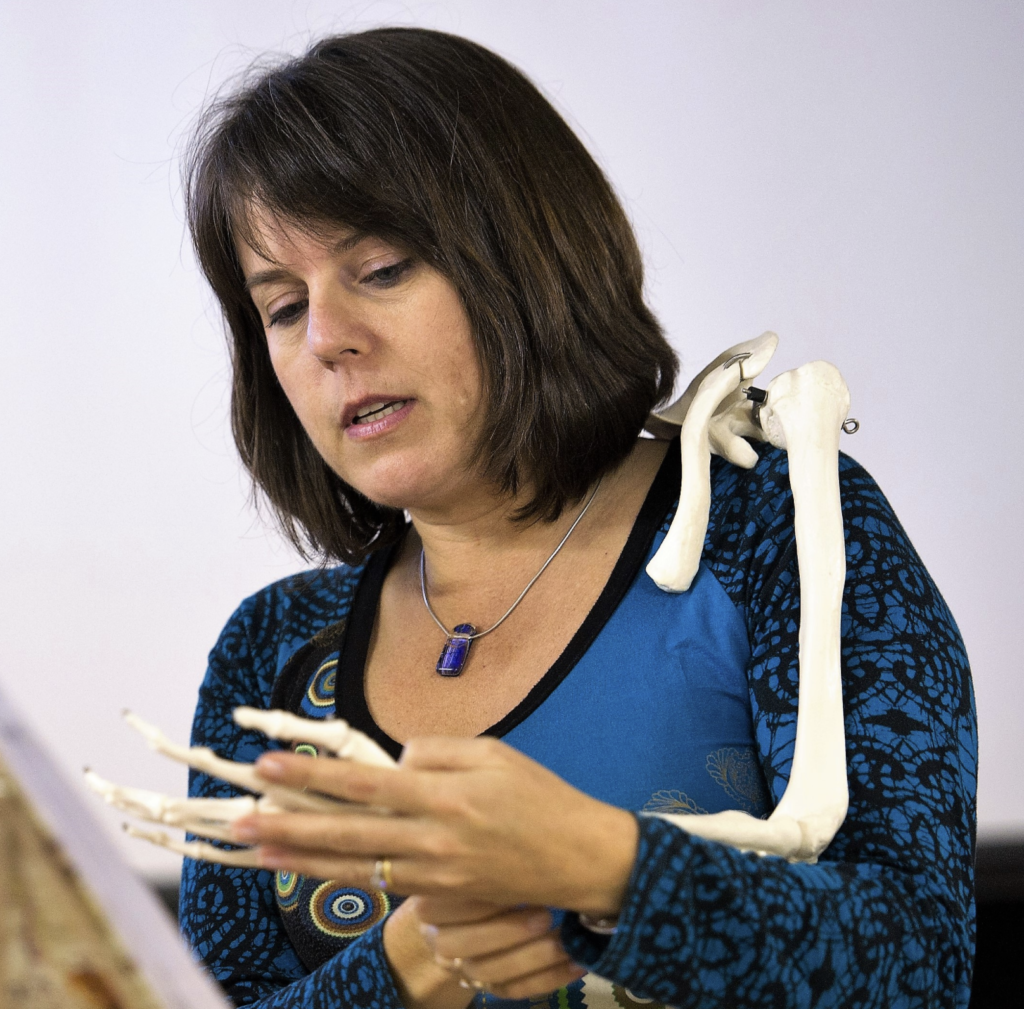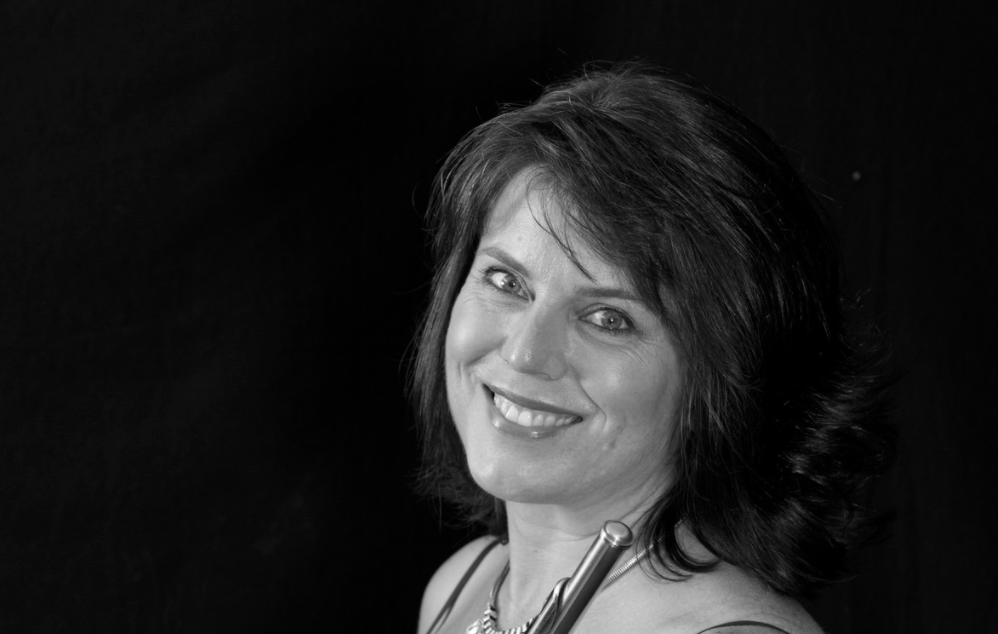I have been fortunate to know Bridget Rennie-Salonen for a number of years through the Association for Body Mapping Education (ABME), of which we are both licensed members. She has been a regular contributor to the Biennial ABME conferences, traveling to the US from South Africa every two years, and has performed amazing works by South African composers on the conference recitals. She founded the South African Performing Arts Health Association and her current research with musicians’ health is a valuable addition to the base of knowledge that exists to help injured musicians and the health care professionals who work with them.

BIO: Dr Bridget Rennie-Salonen, flautist, lecturer, and practitioner and researcher in Performing Arts Health, is Postdoctoral Fellow at the Africa Open Institute for Music Research and Innovation, Stellenbosch University (SU). She is Part-time Lecturer and Head of Woodwinds in the Music Department at SU, including lecturing in flute, Baroque Traverso, woodwind pedagogy, repertoire studies and orchestral studies, directing wind ensembles, and supervising research. Bridget also teaches flute part-time at the University of Cape Town. She is highly sought after as a flute pedagogue, and many of her former students have excelled in competitions and in overseas studies, won scholarships for study abroad, and now occupy key performance, entrepreneurial, and educational positions in the South African (SA) music sector. Bridget serves on the committee of the Forum for Instrumental and Vocal Teaching of the International Society for Music Education (ISME).
Bridget’s PhD (Music) from the University of the Free State (utilising Interpretative Phenomenological Analysis) focused on musicians’ occupational health curriculum content, implementation, and assessment. As a Licensed Body Mapping Educator and holding certificates in the Essentials of Performing Arts Medicine and in Functional Movement Anatomy, she is particularly interested in the field of somatics and the interaction of the psychological, physical, and artistic aspects in performing artists, from preventative, therapeutic, and performance optimisation perspectives. Bridget is Chairperson of the steering committee of the SA Performing Arts Health Association and is core member of the international Musicians’ Health Literacy Consortium, researching musicians’ health education and health literacy.
A well-known performer in multiple genres, Bridget has appeared as soloist with several South African orchestras. As the Solo Principal Flute of the Cape Town Philharmonic Orchestra for many years, she was the recipient of the prestigious Ben & Faye Carklin Award for Artistic Excellence. Recent awards include Fiesta, Silver Ovation, Fanie Beetge Academic Prize, and Oppenheimer Memorial Trust awards. As a freelancer, Bridget is the principal flute of the Cape Town Festival Orchestra, regular guest principal with the Free State Symphony Orchestra, and Baroque traverso flautist with the Camerata Tinta Barocca.
K: You have a career with many different pieces: flutist, teacher, movement educator. What is a typical day like for you?
B: An average day usually has 6 hours of lecturing and teaching, with individual flute lessons, and courses like woodwind and flute methods and repertoire studies. I conduct the woodwind ensemble which rehearses once a week, and I also do post-graduate research supervision. I regularly make time for my own flute practice and my research work, either of which I prioritise according to my performance and research schedule deadlines. My Pilates class happens in the very early morning twice a week, and most days, my husband and I have an early evening walk with our 2 dogs!
K: When did you know that flute was THE instrument for you? Can you describe your education as a flutist?
B: I played the recorder from age 4 and just loved it. I still have my first book with my little drawings and handwritten music. Quite a treasure actually! I started the flute at age 10. I come from a family of string players, and I was told that it was about time for a wind instrument, from which I could choose …so of course I chose the flute! I am fortunate to have had wonderful teachers: Beat Wenger, Lucien Grujon, and Eva Tamassy. They had each studied with masters: Jaunet, Moyse, and Rampal respectively, so I was in amazing hands. I also had masterclasses with amongst others, William Bennett, Peter-Lukas Graf, Susan Milan and Shigenori Kudo, all inspirational performers and teachers. My dream was to pursue my graduate studies with my icon of the flute at the time, Aurele Nicolet, in Germany, but life had other ideas… I won my first orchestral position at age 22 and so stayed in Cape Town instead, and met my husband: violinist and concertmaster, Petri Salonen. In my ‘former life’ as a full-time principal orchestral flautist, I learnt incredible musicianship and performance skills from my principal woodwind colleagues, and the many wonderful conductors and singers with whom I worked. My learning continues – it will never stop! I am continually evolving and growing as an artist. For example, nowadays as a freelancer in different genres and performance areas, I enjoy developing my stylistic versatility. As a Baroque Traverso flutist, in Camerata Tinta Barocca, which I joined in 2013, I sometimes still feel like a child with a new toy, constantly discovering the joy of that ‘new’ instrument. I love exploring the infinite amount of repertoire as well as the freedom it gives me.
K: I really enjoy hearing you perform music by South African composers when you come to the US. Can you list some of your favorite pieces and tell us a little bit about them?
B: There are many, and it is hard to choose! A few wonderful unaccompanied ‘gems’ for solo flute are: Peter Klatzow’s ‘Moon Ritual’, Roelof Temmingh’s ‘Nostalgia’, and Stefans Grové’s ‘Pan and the Nightingale’, all of which I enjoy playing very much.
For flute and piano, Hendrik Hofmeyr’s Sonata and Alexander Johnson’s ‘Imicabango’, are both iconic ‘big’ multi-movement works with everything from evocative lyricism to virtuosic drama, representing each composer’s style very well.
Also, for flute and piano is Paul Hanmer’s short ‘Sarabande for the days of a sundog’ which is pure indulgence. Hofmeyr’s flute and guitar work, ‘The Poet and the Nightingale’ depicts the flute as a soulful and mournful nightingale, and Klatzow’s ‘Strophe, Antistrophe, and Dances’ for flute and harp is quite a tour de force, and always evokes very mixed audience responses! Allan Stephenson’s Flute Concertino, Piccolo Concertino, and his chamber works with flute and strings are all uplifting and fun, with his typically cheerful jaunty melodies, rapid passage work, and beautifully expansive expressive lines.
K: What groups are you performing with now? Well, what performances would you be doing if we weren’t all living through a global pandemic?
B: Yes, I will never take live performance for granted again, but will truly appreciate it. Usually, I’d be doing frequent concerts on Baroque Traverso with my early music colleagues in Camerata Tinta Barocca (https://ctbaroque.co.za/), performing with guitarist James Grace in our Zomari Duo, and in the Gabriel Duo with harpist Gaylen Sales. My freelance orchestral work is typically as principal flute of the Cape Town Festival Orchestra and as visiting guest principal of the Free State Symphony Orchestra.
K: Can you describe memorable moments/performances as a flutist?
B: There are many – it hard to pinpoint one or two! Playing the Bach B minor suite at a Safari Lodge in the Northern Kruger National Park in the middle of the African bush in a semi-open air thatched platform with elephants in the distance. Or playing the solo flute in the mad scene from the opera Lucia di Lammermoor, where the soprano did it rather differently at every performance! Or in a symphonic pops concert, dressed in stiletto heels and a slinky black outfit, to walk out on centre stage of an enormous stadium to play the solo pop-rock flute part with a South African pop singer. But I think one of the pieces that is always memorable because it moves me the most, is the slow movement of the Mozart flute and harp concerto. Performing that is forever spine-chillingly beautiful.
K: What is your flute teaching studio like? Do you have private students, in addition to collegiate level students?
B: My flute teaching is mainly at the university, so at the tertiary level, both undergraduate and post-graduate. I give masterclass-type private lessons and have a select few private students.
K: What is your favorite thing about teaching?
B: Allow me to tell you about a few of my favourite things here! The ‘Aha’ moments in a student when they make important discoveries for themselves; the way they each find their own signature sound as their ‘voice’ on the flute; the fun of playing duets in lessons; the variety of different students’ learning needs and levels; to see a student grow in artistic confidence and independence, and as a human being; and I think mostly what I love is to be constantly learning from and being inspired by my students!
K: What are some things that you say to your students frequently that come from your flute teachers?
B: ~ About tone and expression: “Sing”; “Love your sound”; “Tell a story”; “The 3 most important things are tone, tone, and tone!”; “What is your musical intention?”
~ About slow practice with awareness: “Practise really slowly”; “Take it slower and this time really listen to what you are doing and notice what is going on in your body too”; “Practise at the speed of no mistakes”; “Play every note with the same care and attention” One of my former students reminded me that I once had her practice super slowly for an entire week and it was a momentous week she still remembers!
~ About appropriate effort: “Try not to try so hard!”
~ About confidence: “Just play – get on with it! No more over-thinking!”; “Play confidently!” In fact, one of my current students teased me recently about the superhero pose I usually assume at the same time as I say this!
~ About understanding yourself: “Your greatest gift can also be your greatest challenge”
K: How would your students describe your teaching?
B: Here are student responses: “Out of all the teachers I’ve played for, you have the most extraordinary gift for addressing students’ technical needs clearly AND integrating that with the absolutely crucial psychological needs for autonomous self-expression and confident performance”
“You always tell me to trust myself and that i’m much better than I think I am. You also let me know to balance being self-critical with recognizing my growth and progress”
(KMW: I’ve met at least one of Bridget’s students and have seen her teach many times at ABME conferences. She’s a gifted teacher and I’m not at all surprised by these comments from her students.)
K: How did you become interested in musicians’ health and well-being?
B: I became interested in musicians’ health in the early part of my career. I saw many orchestral colleagues and university students with performance-related health issues, and I sometimes found long rehearsals and performances really physically draining and also mentally taxing. I learnt the Alexander Technique, later training in Body Mapping after which I became a Licensed Body Mapping Educator. I loved it so much that I also took a course in musculoskeletal movement anatomy! I think the seeds had actually been sown much earlier too, in that I had studied psychology as a major in addition to music when I was at university.
K: What drew you to actually doing actual research in the field of performing arts health?
B: I just had so many questions, and I became more and more curious. It was a natural progression for me: a relevant personal interest and professional development training that led to academic research. I’ve always been drawn to integrated perspectives, particularly where optimal performance, creativity, and self-expression meet with health and wellbeing, both psychological and physical.
K: What does your job as a musicians’ health researcher and practitioner entail on a day-to-day basis?
B: As a musicians’ health and movement practitioner, I see musicians for individual sessions. These may be drop-in sessions, or for a few consultations in a row. In some cases, a longer-term rehabilitation programme is needed over a year or more, in which case I assist in the formation of a multidisciplinary team rehabilitation protocol comprising my ongoing input together with the appropriate health and music professionals needed. This teamwork is a huge passion of mine, as I function best in a team, and just love the brilliant results achieved with the combination of expertise and experience from several expert professional perspectives. My musicians’ health research evolves along with whatever research projects I am busy with, and how that focus fluctuates. For example, recently I was working on a research article on Stress Velopharyngeal Insufficiency (SVPI) in wind musicians, and I am currently busy with a large writing project on musicians’ health education approaches in tertiary music education. With my research supervision in this field, I am usually doing a lot of reading to stay up to date with current musicians’ health literature, and also to be informed on the topics that my graduate students are researching.
K: What advice would you give to young flutists who want to know how to prevent injury and play at their highest level? What about advice for flutists who are already dealing with an injury of some type?
B: Start with two fundamental principles: “You are your instrument”, and “Never play in pain”. With that you take care of yourself to be the best you can be, aligned with your values and goals. The basics are sleep, nutrition, exercise, and social connectedness, as well as developing self-understanding in terms of mindset, spirituality, and beliefs. This leads you to take responsibility for finding not only your healthy lifestyle, but importantly to the best way of approaching your flute playing and musicianship to promote flute excellence and achievement, together with injury prevention and well-being. You will become aware of things like how you practice, how you plan and set goals, and how you communicate with your teacher about any pain, discomfort, or technical challenges you experience, and then how you solve those together with your teacher. You must always be curious to find out more about the physical and psychological aspects of optimal performance and injury prevention. Read about it, talk to peers, talk to your teachers, seek out health professionals and movement educators who work with musicians, join their workshops, participate in master-classes, and attend live concerts of all instrumentalists and vocalists, not only your own instrument. You will be able to then see, discover, learn, and experience how well-coordinated movement, fantastic sound, technical ease, and expressive freedom always go together!
K: What is happening with musicians’ health in South Africa?
B: There is much interest in the field, but no actual buy-in from educational institutions, music organisations, professional affiliations, and the music industry in general. Some research in the field has been accomplished in recent years, but there is little application and change ‘on the ground.’ Therefore a few colleagues and I held the first National Performing Arts Health Symposium in 2017, and we have now just started the South African Performing Arts Health Association. I am the chair of the steering committee, and our aim is to be a collaborative network to promote health and wellbeing for all in the performing arts industry in South Africa. These are the first very important milestones, and we have a step-by-step vision and mission that we will gradually implement… Exciting times!
K: What have been your biggest challenges and how have you overcome them?
B: An unexpected highly traumatic incident occurred in my life in 2008. It happened during a period when I was overworking as a music educator and performer, together with parenting 3 very young children. The effects of the post-traumatic stress together with sheer exhaustion, almost burnout, gave me a huge wake-up call. Re-evaluating my workload, looking deeply within, and much reflection took me on a path of joyful recovery. Part of this was my choice to train as a Body Mapping Educator which began my adventure in musicians’ health and research!
K: How has the Covid 19 pandemic affected your work?
B: I have not performed live at all since March 2020. Performance work stopped apart from 3 wonderfully produced audio- and video-recorded productions in the second half of 2020, for TV and online release: one was with guitarist James Grace, one with Camerata Tinta Barocca, and one with the Cape Town Philharmonic Orchestra. I am grateful that I at least had some work, compared to many colleagues who just had nothing. This obviously has financial and identity implications for us all, and we begin to question the value of what we do as artists. In this brutal reality, motivation is a huge challenge and inspiration is often so elusive. Staying positive and focussing on what we truly love and find meaningful, that brings joy to our lives and others’ lives, is therefore absolutely critical.
Rapid Fire Questions:
What is your favorite color? Violet
Coffee or tea person? Coffee
Favorite things to do that are not flute related? Gardening and walking with my dogs
Dog or cat person? Dog
Fun fact about you that most people don’t know? I studied fine arts and I have many of my own paintings, drawings, etchings, and woodcuts hanging on my walls at home!
Favorite book or book that you read most recently? Kitchen Table Wisdom: Stories that Heal – by Rachel Naomi Remen
Place you’d like to visit on vacation? Anywhere in the Caribbean! My husband is a keen and skilled sailor so this could be really fun!
Favorite place that you’ve been on vacation and would like to go back? (Do they say “on holiday” instead of “on vacation” in South Africa?) Here we say, ‘on holiday’! I’d love to further explore Namibia and Botswana, and in contrast, also Spain and Portugal. In fact, I just love travelling and discovering nature, the outdoors, and the culture in new places!
Favorite quote: “The pursuit of excellence is gratifying and healthy. The pursuit of perfection is frustrating, neurotic and a terrible waste of time”.
Bridget’s website: https://bridgetrs.com/




A beautifully constructed and enlightening interview with a truely dedicated and inspiring flutist and teacher. South Africa is lucky to have her grace our midst. May her “pursuit of excellence continue to be gratifying and healthy”.
Thoroughly enjoyed reading this interview! Bridget’s combination of artistry, care, incredible work ethic and dedication to musicians’ health is remarkable and inspirational. She has made a difference in many lives.